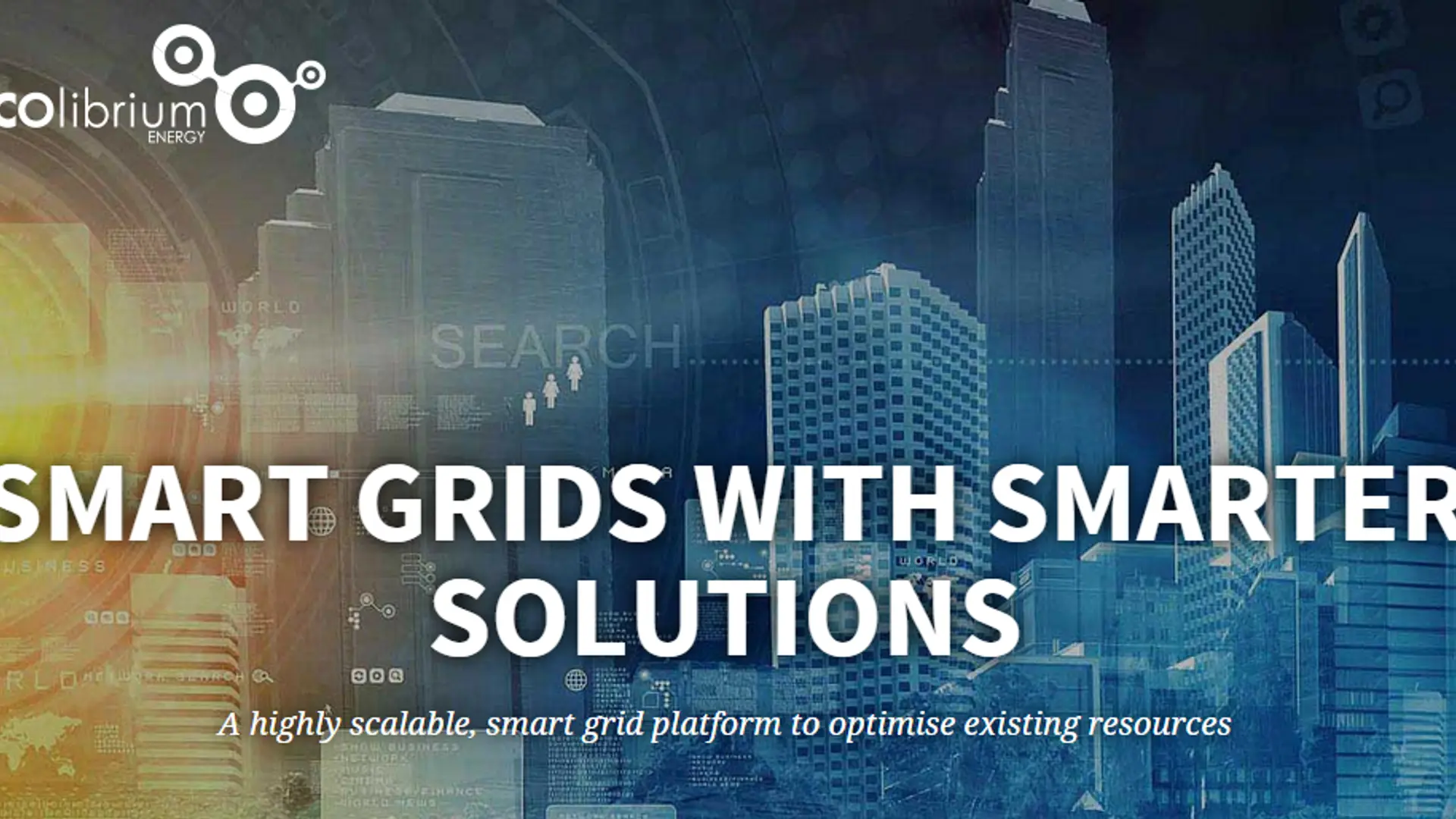How Ahmedabad-based Ecolibrium is helping companies cut energy costs
“The cheapest energy is the one you don’t use in the first place,” goes an oft-repeated quote on conservation of energy. But unless you know how much energy you use and how efficiently you use it, how can you think of ways of cutting your consumption?
It is this thought that led to Ecolibrium Energy, an Ahmedabad-based startup that shows the way to hundreds of industrial firms in India. Ecolibrium sets up sensors in various parts of an assembly line in a factory and its cloud-based software system analyses the data to find power inefficiencies and recommends ways to plug them.
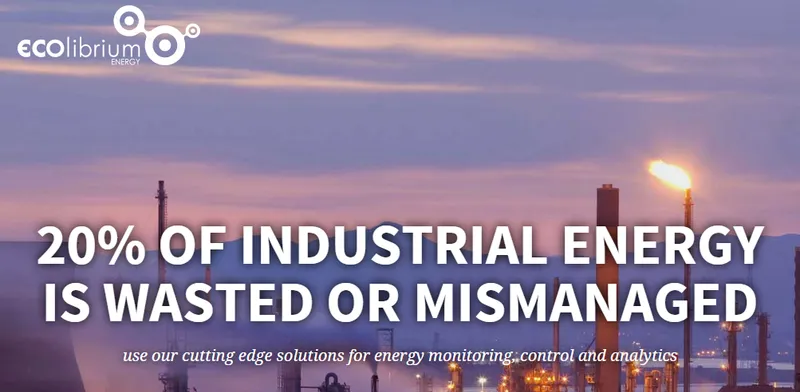
Last month, Ecolibrium, which was incubated at IIM Ahmedabad’s Centre for Innovation, Incubation and Entrepreneurship (CIIE), won the UNFCCC’s Lighthouse Activity Awards under Information & Communication Technology.
The beginning:
Chintan and Harit Soni, founders of Ecolibrium Energy, had been planning to start up five years ago and were thinking of biofuels and clean energy. They hit upon the idea of setting up a Demand Response system that would work in power deficit countries.
This is a dynamic system where electricity supply is managed between customers, and some consumers reduce their usage at times when other users require to draw more power.
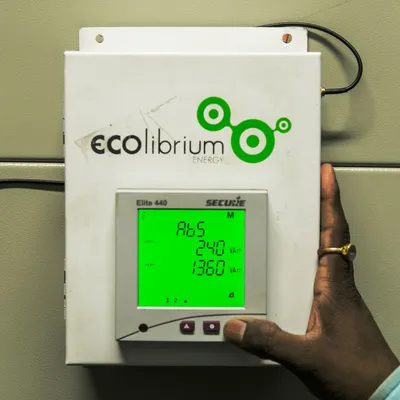
“But we realized that it wasn’t possible to reduce usage unless you know how much you use and how you can cut usage. We figured out that’s the need,” says Chintan.
The founders approached CIIE with the idea and were told to provide a proof of concept by doing it with one customer. Torrent Power, an Ahmedabad-based power generation and distribution company, signed them on for a pilot project.
“We got incubated and initial funding of 25 lakh rupees. That’s how it all began,” says Chintan.
Ecolibrium Energy started in Ahmedabad in 2010, went into commercial production in 2012, and now has operations in Ludhiana, NCR region, Indore, Raipur, Hyderabad, Chennai, Bengaluru and Mumbai.
The product and customers:
Ecolibrium places its smart sensors at various points of the assembly line to gather data of energy consumption. “We started out with electricity usage, but now we study all forms of consumption – steam, electricity, gas,” he said.
The data is transmitted to a cloud-based server where the software analyses and recommends changes.
“We get in and tell them where are they consuming energy. Where the leakages are and why and how to fix it,” adds Chintan.
The company is targeting industrial firms as well as commercial companies such as hotels and malls.
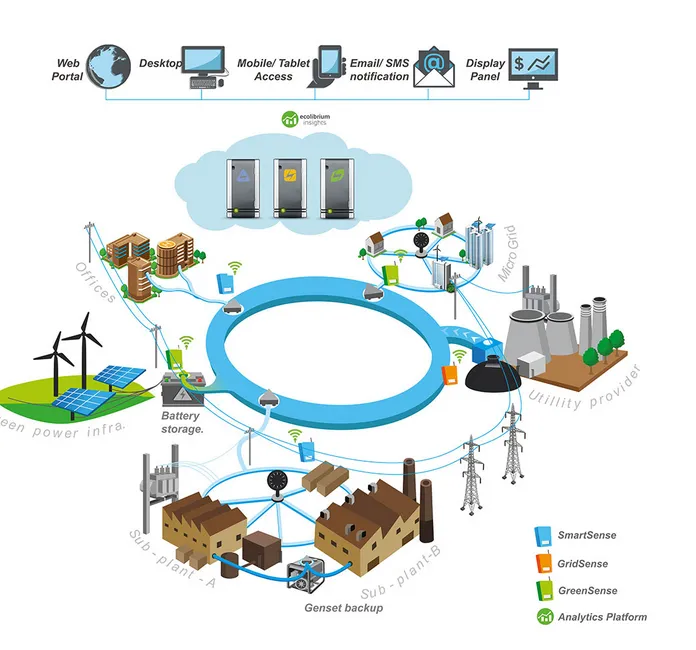
“If you look at the value chain, manufacturers have no control over most of it except energy,” says Chintan. "Raw material, labour etc are market dependant. Energy forms anywhere between 10-60 percent of operating expenses. If you could get 1 or 2 pct reduction in energy cost, that’s a direct addition to the bottomline."
The service has helped companies reduce between 5 percent and 25 percent of their energy costs, according to Chintan. “They have recovered the cost of our system in a matter of days,” he adds
He gives the example of Delhi Metro, where Ecolibrium installed five devices.
We figured out that the power factor was really bad, there were a lot of losses in the cables because of which they were paying 1.5 lakh rupees everyday as penalty. After our analysis, they put in capacitors and saved that money.
The company is also working with bigger companies in predicting and managing energy use.
“Most of the large industries buy power from the energy exchange and power companies. The power from the energy exchange is cheaper by 1-1.5 rupee/watt,” he said.
“We get into the customer’s location, figure out what the consumption pattern is and tell them what time they should buy from exchange, and what time you should buy from the electricity company,” Chintan adds.
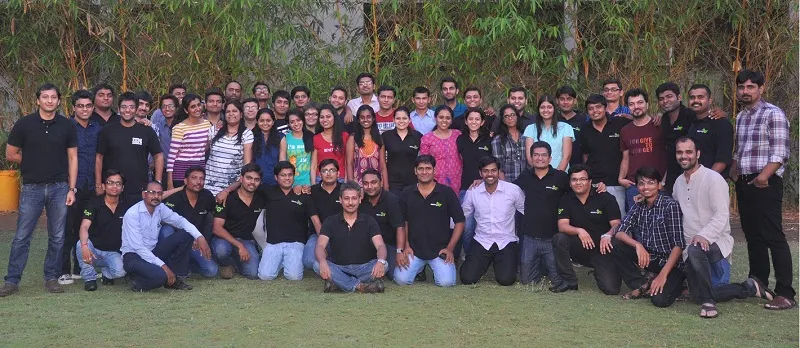
Funding and future plans:
In 2013, Ecolibrium received angel funding of $1.5 million from Infuse Ventures and International Finance Corporation (IFC). Since then, the team has grown to 62 people from 19 and the company has gained 500 customers in its three years of operations. The company is also looking at raising funds again, he added.
The company is looking at new products and at international markets in countries like Bangladesh, Sri Lanka, Saudi Arabia and Malaysia.
About the award, Chintan says:
UNFCC looked at organizations who are helping reduce carbon footprint this this time they introduced the ICT category, in which we won. The award has given us a lot of confidence and more credibility.


